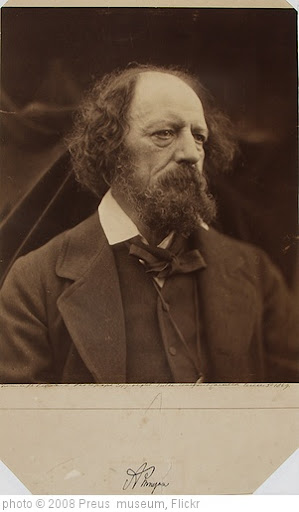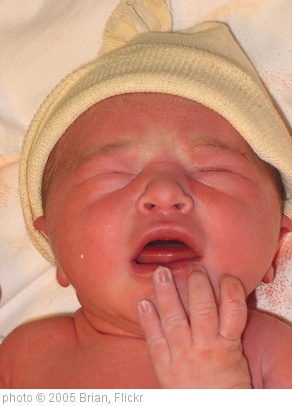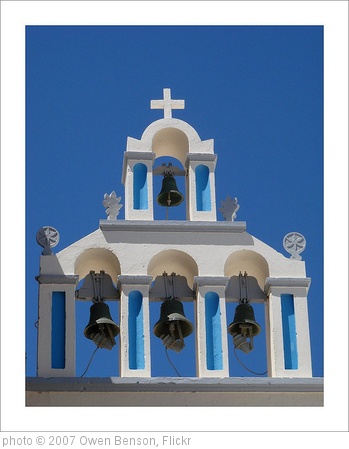“Poetry is emotion put into measure.”~Thomas Hardy
Tennyson’s friend, Arthur Henry Hallam, b. 1811, was the subject, upon his death in 1833 at the age of 22, of Tennyson’s famous poem In Memoriam. Hallam was engaged to Tennyson’s sister, Emilia, and he was Tennyson’s close friend. He died suddenly while travelling in Vienna of a brain hemorrhage. The poem wasn’t actually published until 1850; I guess it took Tennyson that long to work through his grief in poetic form over Hallam’s untimely death.
In Memoriam is written in four-line ABBA stanzas of iambic tetrameter, and such stanzas are now called In Memoriam Stanzas. It’s a long poem that traces Tennyson’s grieving over the course of at least three years. Here are a few of the most often quoted lines and stanzas of the poem:
 Strong Son of God, immortal Love,
Strong Son of God, immortal Love,
Whom we, that have not seen thy face,
By faith, and faith alone, embrace,
Believing where we cannot prove;
Thine are these orbs of light and shade;
Thou madest Life in man and brute;
Thou madest Death; and lo, thy foot
Is on the skull which thou hast made.
Thou wilt not leave us in the dust:
Thou madest man, he knows not why,
He thinks he was not made to die;
And thou hast made him: thou art just.
********************************
 I falter where I firmly trod,
I falter where I firmly trod,
And falling with my weight of cares
Upon the great world’s altar-stairs
That slope thro’ darkness up to God,
I stretch lame hands of faith, and grope,
And gather dust and chaff, and call
To what I feel is Lord of all,
And faintly trust the larger hope.
********************************
I hold it true, whate’er befall;
I feel it when I sorrow most;
‘Tis better to have loved and lost
Than never to have loved at all.
********************************
Behold, we know not anything;
I can but trust that good shall fall
At last — far off — at last, to all,
And every winter change to spring.
So runs my dream: but what am I?
An infant crying in the night:
An infant crying for the light:
And with no language but a cry.
********************************

Man, her last work, who seem’d so fair,
Such splendid purpose in his eyes,
Who roll’d the psalm to wintry skies,
Who built him fanes of fruitless prayer,
Who trusted God was love indeed
And love Creation’s final law–
Tho’ Nature, red in tooth and claw
With ravine, shriek’d against his creed–
******************************

Ring out, wild bells, to the wild sky,
The flying cloud, the frosty light:
The year is dying in the night;
Ring out, wild bells, and let him die.
Ring out the old, ring in the new,
Ring, happy bells, across the snow:
The year is going, let him go;
Ring out the false, ring in the true.
Ring out the grief that saps the mind,
For those that here we see no more;
Ring out the feud of rich and poor,
Ring in redress to all mankind.
Tennyson struggles with doubt and grief and philosophical questions throughout the poem, but ends with faith in a God who hears his cries:
No, like a child in doubt and fear:
But that blind clamour made me wise;
Then was I as a child that cries,
But, crying, knows his father near;
And what I am beheld again
What is, and no man understands;
And out of darkness came the hands
That reach thro’ nature, moulding men.
Queen Victoria, after the death of her beloved husband Albert, said, “Next to the Bible, In Memoriam is my comfort.”